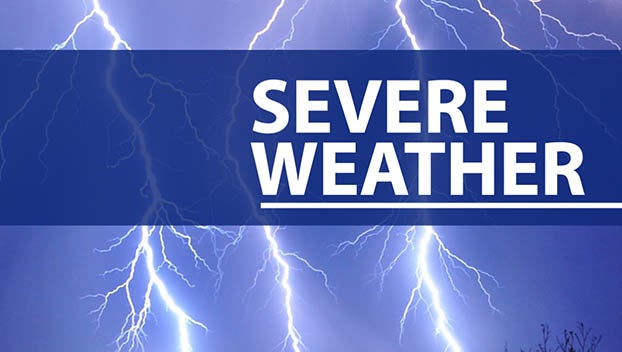Today is June 23, 2021
Published 7:00 am Wednesday, June 23, 2021
National Hydration Day
How to avoid dehydration in the great outdoors
Hiking, fishing and swimming are among the more popular ways to experience the great outdoors. Outdoor enthusiasts may find nothing better than a day on their favorite trail or an afternoon spent fishing or swimming in a nearby lake.
Nature can inspire a sense awe and wonder, and in such situations it can be easy to overlook safety. That’s a potentially dangerous mistake but one that is easily avoided. Nature enthusiasts accustomed to spending long hours in the great outdoors are vulnerable to a host of potentially dangerous conditions, including dehydration. Avoiding dehydration involves learning to recognize its signs and symptoms and how to prevent it from occurring.
What is dehydration?
According to the U.S. National Library of Medicine, dehydration occurs when the body loses more fluids than it is taking in. When that happens, the body does not have enough fluids to function properly.
What causes dehydration?
Numerous things can cause someone to become dehydrated, including not drinking enough fluids. Diarrhea, vomiting, sweating too much, and urinating too much are some other factors that can cause someone to become dehydrated.
Why are outdoors enthusiasts at risk of dehydration?
Outdoor enthusiasts who spend ample time outdoors during hot weather are at risk of dehydration if they do not drink enough fluids while outside. The risk of dehydration on hot days is higher because people are more likely to sweat a lot when the temperature rises. If those fluids are not replenished, and replenished often, dehydration can occur. In addition, the USNLM notes that outdoor exercise during hot days increases the risk of dehydration. Outdoor activities that are physically challenging, such as hiking, rock climbing and kayaking, are a form of exercise that can make participants more vulnerable to dehydration.
What are the symptoms of dehydration?
The Mayo Clinic notes that thirst is not always a reliable indicator that the body needs water. Older adults are more vulnerable to dehydration than others because they naturally have a lower volume of water in their bodies. Aging men and women also don’t typically feel thirsty until they’re already dehydrated. So it benefits people of all ages, and especially the elderly, to learn these symptoms of dehydration.
· Extreme thirst
· Less frequent urination
· Dark-colored urine
· Dry mouth
· Less frequent sweating
· Feeling tired
· Dizziness
· Dry skin
Parents should know that infants and children may exhibit symptoms of dehydration that differ from those experienced by adults. Such symptoms may include:
· Dry mouth and tongue
· Crying without tears
· No wet diaper for three hours or more
· High fever
· Being unusually sleepy or drowsy
· Irritability
· Eyes that appear sunken
Can dehydration be prevented?
Ensuring sufficient fluid intake can help people avoid dehydration. Drinking enough water each day and avoiding outdoor physical activity on hot days are some other ways to reduce dehydration risk. In addition, avoid sugary and/or caffeinated beverages to reduce risk for dehydration.
A perfect day outdoors involves drinking enough fluids to stay hydrated.
**
Commons symptoms of engine control module problems
The notion of vehicle maintenance often conjures images of greased-stained hands and car hoods propped up. While professional and amateur mechanics are still no strangers to getting their hands dirty, vehicle maintenance in the 21st century also involves diagnosing issues that might arise with a car’s engine control module.
What is an engine control module?
An engine control module, or ECM, serves as the primary computer system for many critical components in modern vehicles. ECMs essentially serve as the brains behind the engines, controlling everything from fuel mixtures to emissions controls. Sensors within the engine send signals to the ECM, and the ECM then uses that information to help the car run smoothly. Issues that arise with the ECM can make driving difficult and, in some cases, impossible.
What are some potential signs of ECM issues?
The automotive service provider Aamco notes that a faulty or failing ECM will exhibit various symptoms. However, it’s important to note that these symptoms are not always indicative of issues with the ECM, so when they arise drivers may want to schedule appointments with their mechanics so the true culprit can be identified and the problem can be fixed.
· Check engine light comes on: Many drivers have experienced the dreaded check engine light, which indicates some type of issue with the engine. That issue can be a failing engine component, or it may indicate a failing or bad ECM. A mechanic can determine why the light has come on.
· Engine performance issues: Even though the ECM is a separate entity from the engine itself, a bad or failing ECM can affect engine performance. That’s because such ECMs throw off the timing and fuel settings of the engine, leading to a sudden and noticeable reduction in engine performance. Engine power may be affected, and the vehicle may experience a drop in fuel efficiency and issues with acceleration.
· Vehicle will not start: A failed ECM means the vehicle won’t start, as there’s nothing controlling the engine to tell it do so. Failing ECMs may lead to struggles starting the vehicle, and whenever drivers experience these issues, they should consult their mechanics immediately so the issue does not escalate to the point where the engine won’t start at all.
· Erratic engine behavior: A malfunctioning ECM can lead to stalling or misfiring. These issues are often sporadic, which may give drivers the impression that nothing is seriously wrong. However, erratic engine behavior is a strong indicator of problems with the ECM, and these issues should be addressed immediately.
Identifying ECM issues and promptly addressing them can help drivers keep their vehicles on the road.




